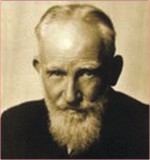Feature
Captain Kirk's Infinitive: Defying Prescription
Dr Binoy Barman
In my English grammar class I always advise my students not to split an infinitive, that is, insert any adverb between 'to' and the following verb. But they seldom pay heed to my words. They write: 'to nicely talk', 'to attentively listen', 'to slowly read' and 'to efficiently write'. I argue that it is a prescribed rule of English not to split infinitive. To make a rift in the infinitive is a violation of the rule. I advise them to put the adverb after the verb so that the infinitive phrases should be: 'to talk nicely' 'to listen attentively' 'to read slowly' and 'to write efficiently'. But the frown of prescriptivism cannot suppress their way of expression. They continue to write: 'to hungrily eat', 'to quietly sleep', 'to smartly dress', 'to hurriedly move', etc. I insist on my point, which at last makes them 'to gradually stop' their venture and wonder why the unnecessary prescriptive rule is there!
I tell my students the story of Captain Kirk, who in the TV serial 'Star Trek' would make the urge 'to boldly go' at the beginning of every episode. Since then the supposed linguistic glitch of 'split infinitive' began to be popularly known as 'Captain Kirk's Infinitive'. I go on to explain that the grammatical sense of Mr Kirk was not well developed as he was taught English by a language teacher, who lacked knowledge of Latin Grammar. Latin Grammar prohibits, (rather say, inhibits) splitting infinitive. For example, one has to say 'ire audacter' in Latin. 'Ire' means 'to go' and 'audacter' means 'boldly'. In fact, there is no scope of splitting infinitive in Latin as there is no 'to'-like element there. The classical language is integrative in its verb form.
But in English 'to' is a free morpheme ('morpheme' is the minimal meaningful unit of sentence) which is dissociated from the verb. While in Latin the infinitive is just one word, in English it is composed of two words 'to' plus the bare form of verb. In Latin it is 'ire' but in English it is 'to go'. Morphology works differently in the two languages. Hence it is questionable whether one should apply the rule of Latin Grammar to English. But, unfortunately, this was done by the early grammarians of English language. They imported Latin rules into English, and prescribed writing 'to go boldly' instead of 'to boldly go'. They were crazy and made others crazy. The eighteenth century prescriptive grammarians of England would kill me for making fun of them if they got me among them!
I understand the logic of my students' mind why they are reluctant to follow prescription. In practice, why should they go against what occurs naturally? The infinitive is just divided naturally in English. We can say 'to secretly love' just as 'to love secretly'; we can say 'to openly criticise' just as 'to criticise openly'. Both kinds of expression should count as valid. There should not be any pressure to adopt one rather than the other. Prescription is tantamount to proscription. It is injustice!
In the subcontinent Bangla Grammar has also witnessed many prescriptions over the centuries. The rules of Sanskrit grammar were imposed on Bangla in a futile attempt to explain certain phenomena peculiar to it. For example, Bangla was analysed by the Sanskrit case rules, although the case systems in the two languages are not quite identical. Number, gender and other grammatical categories are also different in the two languages, but Sanskrit grammar was often forcibly brought in to analyse Bangla. Sandhi and Samas, which our students learn in school, are the remnants of Sanskrit grammar.
It is obvious that prescription is not always good. Sometimes it is necessary to defy as my students often tend to do in the grammar class. I ask my students to look out of grammar books and find out prescriptions in other spheres of real life. They immediately catch my gesture and surprise me with their findings.
The multilateral lending agencies like World Bank (WB), International Monetary Fund (IMF) and Asian Development Bank (ADB) prescribe increasing the price of fuel oil, electricity and gas. They are not ready to consider how the energy prescription will affect, with rising inflation, the life of common people. The donors prescribe privatisation of banks, industries and other state-owned entities no matter how many workers will be laid off and where they will go. They also oblige us to follow their prescribed economic models, so that we can achieve, as claimed, faster growth rate. They make us dream better life without poverty. The developed countries prescribe trade liberalisation, with minimised taxes on import, so that they can send their goods easily and viably to the developing country. Prescriptions are also given for fighting terrorism and corruption. The prescriptions are like heavenly orders. We have 'to strictly follow' them. Oh, no! We have to follow them strictly.
Prescription is a weapon to suppress and oppress. The mightier takes advantage of their might to dominate the weaker. As they have political, economic and military power, by virtue of their money, arms and technology, they preserve the right to prescribe. The United States may prescribe Iraq a political system, albeit not liked by the majority of people. The most powerful nation of the world may also prescribe inspection of nuclear power installations of Iran, defiance of which may result in the 'military campaign'. When somebody has the right to prescribe, logically, there should be also the right to defy the prescription by the person for whom it is made. A wrong prescription may naturally face right defiance.
The young souls boldly follow Captain Kirk. They are ready to defy prescription of any sort. But I warn them: Don't defy the prescription of your physician! No negligence in taking medicine. Children of Captain Kirk, keep out of danger. You have 'to safely live' after all, right?
EWU Remembers George Bernard Shaw
Md. Shakhaowat Hossain
 East West University paid homage to George Bernard Shaw's (26 July 1856-2 November 1950) 151st birthday on 26 July, 2007. The program was organized by Modern Drama students of English Department and Masrufa Ayesha Nusrat (Course Instructor). East West University paid homage to George Bernard Shaw's (26 July 1856-2 November 1950) 151st birthday on 26 July, 2007. The program was organized by Modern Drama students of English Department and Masrufa Ayesha Nusrat (Course Instructor).
The program started with a film, My Fair Lady, at 10:00 at the Academic building of the university. Mr. Manzoorul Abedin, the film contributor and course instructor, said, “this film is based on the play Pygmalion (1912) of Shaw”.
After a short break, viewers enjoyed another film The Messenger which is also based on Shaw's play Saint Joan (1923).
The program came to an end with the play reading of Man and Superman of Shaw which took place from 3:30 to 4:30. The play readers were: Farzana, Nafisa, Nahina, Nazia, Merina, and Shakhaowat. Instructors and students from several departments attend the program.
(Department of English, East West University)

| 